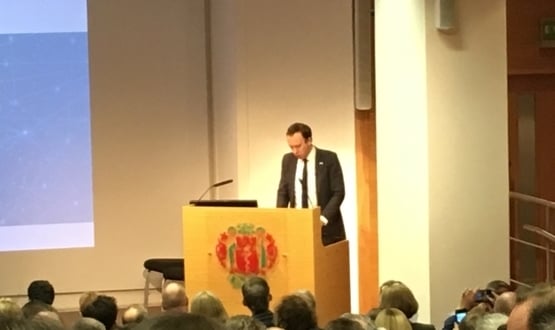Digital fellowship programme launched in response to Topol Review
- 12 February 2019

A digital fellowship programme for healthcare professionals which could lead them to becoming chief clinical information officers (CCIOs) or chief information officers (CIOs) has been launched in response to The Topol Review.
Published on February 11, the independent review, led by US doctor Eric Topol, looked into how the NHS can support staff as more technology is introduced.
A raft of recommendations are suggested in the review, including ensuring clinical informatician training is included at graduate level and investing in the digital skills of current staff.
In response to the review, Matt Hancock, said the Topol programme for digital healthcare fellowships had been launched.
Established by Health Education England (HEE), which was one of the commissioners of the review, the programme is open to clinicians and non-clinicians.
The aim is to help NHS staff develop their digital skills that will start them on a career path to be CCIOs, CIOs or equivalent leaders in health technology and who could play a significant role in supporting change.
The Secretary of State for Health and Social Care said: “This programme will give clinicians the skills to make a practical difference to their local NHS organisations and start them on a career path to become CCIOs and CIOs.
“That way, those leaders can help train and prepare our workforce for a digital future.”
According to the HEE website, applications will “open soon”.
Other recommendations in The Topol Review include:
- Each organisation should assign Board-level responsibility for the safe and effective adoption of digital healthcare technologies at scale, with a focus on clinical outcomes and on promoting effective and consistent staff engagement.
- NHS Boards should take responsibility for effective knowledge management to enable staff to learn from experience (both successes and failures) and accelerate the adoption of proven innovations.
- The NHS and local organisations should support the development of a cadre of educators and trainers who can lead the educational programme to ensure timely upskilling of the NHS workforce.
- HEE should establish a new NHS Digital Education Programme to oversee the implementation of a national digital education strategy.
- Employers must ensure that support for staff to develop and enhance digital literacy is built into training programmes, career pathways and placements.




2 Comments
I’m absolutely for training staff to be more technical, or at least understanding how technology can improve their work (assuming it’s not come from any existing vendor in the industry!) but what I’m unclear on is who is going to lead the Topol/HEE programme? The NHS isn’t exactly rife with technology leaders at the moment!
Great idea, if only we had a successful digital academy to deliver it. No. Wait. Hang on….
Comments are closed.